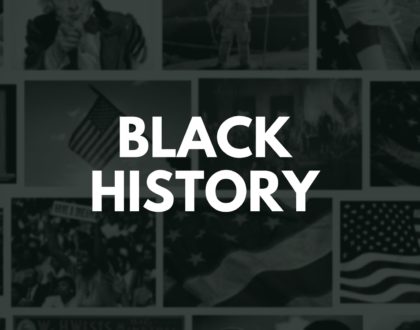On Black History

What The Struggle For Black Liberation Has Meant To The Entire History Of America
On December 19, 2005, Morgan Freeman went on 60 Minutes and announced his belief that Black History Month is “ridiculous.” When prompted by CBS reporter, Mike Wallace, to elaborate on the sentiment, Freeman proclaimed “I don`t want a Black History Month. Black history is American history.” In addition to sharing his perspective on the absurdity of relegating a people’s whole history to the shortest month of the year, he went on to advice Americans to stop talking about race altogether, as a way of putting an end to racism in our country.
Soon after the interview aired, a heated debate erupted between people championing Freeman as completely right, those supporting a few of his key points and those who entirely disagreed with him. Regardless of where one stood on debating the merits of Black History Month, the statements that Freeman made, revealed something important about Americans. More specifically, the comments illuminated the frustration black people experience when forced each year to limit our vast histories of contributions down to just 28 days of remembrance. Add to that frustration the annoyance of cycling through, year after year, the same seven or eight black historical figures — the go-to stories America consumes every February. This is why YW Boston pushes our communities to do better.
In a PBS News Hour episode, activist Angela Davis shared this:
“I think that the struggle for freedom as black people, and their allies, have waged it from the era of slavery to the present, is a struggle for freedom that affects every person in this country and that has global implications as well. So, I would like to think of Black History Month, not so much as the history of black people, but rather as a reflection on the struggle for freedom.”
What if we tried harder to see the whole picture? What if every February, henceforth, we collectively challenged ourselves and each other to dig deeper and to learn as much as we can about the endless contributions black people have made and continue to make toward the betterment of our country? From the glory of our African roots, to surviving the wounds of enslavement, to the brave tracks laid in the underground railroad, to the resilience forged in the face of Jim Crow Laws, to the Civil Rights movement, to the noise bused in by Freedom Riders, to the culture, the art and the music born of struggle, to the modern protests affirming #BlackLivesMatter, to taking a knee against police brutality, to always stepping up and speaking truth to power, to fighting for equality in a million ways. What if we pledged time each month to reflect on “what the struggle for Black Liberation has meant to the entire history of America?”
